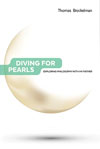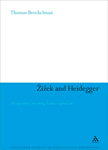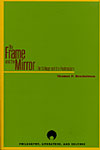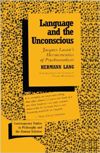Quick links
Part 1, Fundamental Fantasy: Unconscious Theism
Part 2, Johnston & Žižek: Religion and the Atheistic Imperative of Psychoanalysis
Part 3, Diagnosing the Present: The Pervert’s Fantasy–You are here.
Part 4, References
3. Diagnosing the Present: The Pervert’s Fantasy
For all the parallels, there’s an essential difference between Johnston and Žižek here, namely, that Žižek knows better than his theological polemics would indicate.xiv Indeed, we might say that his work ever since The Sublime Object of Ideology (1989) has circled around the increased importance today of such non-conscious elements in social formations. These are elements that Žižek identifies with fetishism and perversion – terms that, for him, name two poles of a single personality type. To this extent, Žižek already adumbrates a theory of what replaces the traditional fundamental fantasy when reality takes on the shape projected by modern science, the shape that Johnston leaves uninterrogated as merely “religious.” Behind Žižek’s loud embrace of Christianity lies a much quieter but more powerful analysis of the specific historical conditions meriting his interventions, and it is this analysis – emerging from an understanding of Freud and Lacan on superego and drive — that can bear fruit in figuring out just how the basic structures of faith as well as those of fantasy are changing today.
Freud’s discussion of the superego in Civilization and its Discontents contains a distinction that is critical to Žižek and to our discussion. Concerning the misery to which the superego’s operation condemns progressively more “civilized” human beings, Freud makes a key observation: were the purpose or end of the superego simply the curbing of the death drive in order to socialize us, then the saint or upright moral person would be free from its grip. The truth, claims Freud, is precisely the opposite: the more “correct” a person’s actions are, the more he or she is likely to be wracked by guilt, tortured by a bad conscience. Given such a result, Freud retreats from the idea that the superego can simply be equated with an internalized “father” or authority and posits instead that its primordial function is a re-direction of the death- drive back onto the subject, a re-channelling of aggression back onto its source. (Freud 1927/74, 125-6)
While by the end of Civilization and its Discontents Freud re-captures the superego within a secondary moral framework, for Lacan and Žižek, the cat is out of the bag: the operations of this “faculty” don’t originally coincide with conscience – punishment for wrong-doing, etc.. The superego can work in that way, of course. However, it does so only insofar as inflicting guilt for moral transgression is one way of punishing, and punishment is always excessive— always more than any specific disorder produced by our “bad” acts or intentions. To put it bluntly, the purpose of the superego is to visit this excess upon us. That’s why, in the version of its function that I discussed under the “fundamental fantasy” we could equate its structural operation with the moral catastrophe of the “Fall” in Christian Theology – that is, with an infinite guilt, a guilt against which no purely human action could be a sufficient response. The “contract” of the fantasy guarantees the perpetual punishment of humanity (even while it offers the distant promise of God’s redemption) in return for a stable reality.
It is the ongoing nature of this torture, this excessiveness of its infliction rather than any particular change in human behavior, that is the superego’s end. When Lacan translates this superego function as “jouissance” (“enjoyment”) he intends precisely such excessiveness, since, as Žižek points out, the overtones of the French term (which suggests sexual orgasm, among other things!) point toward precisely what cannot be placed in any economy of pleasures and pains. (Žižek 2006c 79-80) Jouissance marks precisely that realm of excessive pleasure that we would choose even beyond any rational interest, what is “to die for.”
In other words, the superego can be taken to be excess itself; because of this, its action (rather than any result of it) can be taken to capture the gap in totality produced by the shadow of the subject knowing it. Which is just to suggest that there exists a second possible way of dealing with the anxiety of the subject’s stain on being, an alternative to the path of guilt and exclusion that we found to underwrite the traditional fundamental fantasy. What if the stability of reality could be won by annexing to a “lifeless” field of representation, the immanent organic unfolding of superego activity? What if, to quote Žižek, individuals were sometimes to “push to directly enact the ‘loss’—the gap, cut, distance—itself”? (2006a 117) Such an “enactment” would promise another way to close the gap that otherwise yawns in the middle of being, would promise an alternative route to the constitution of reality.
Following Lacan in this, Žižek names such a path to the constitution of reality “perverse” or, in its transformed relationship to language, “fetishistic.” Using either term (or combining both as I will do below), the point is to indicate a psychoanalytic concept far from any moralistic overtones, one “not defined by the content of what (the pervert) is doing.” (Žižek 2006c 116) Rather, perversion names what precedes any such action, an initial sacrifice of subjectivity, a transformation of consciousness into an element capable of filling the gap produced by consciousness. As Lacan himself puts it, in perversion “the subject determines himself as an object.” (Lacan 1978/62 185)
Such a determination has two immediate consequences, consequences that, between them, explain why Lacan and Žižek associate such a subjective disposition with what we usually call “perversion.” On the one hand, because of its sacrifice of subjectivity, the pervert assumes a “reality” without substantial gap or lack, a field appearing to it as peculiarly “whole” and yet, also, distanced – like, in fact, the virtual reality projected by a video game. Nothing can hurt the perverse subject, who acknowledges no point of connection to or vulnerability within its world. On the other hand, this whole, this totality appears to have a direct, superego, “will” — to merge with which becomes the pervert’s principle. For this reason the “game-playing” of the perverse subject is chillingly a-moral: he/she simply follows the superego/Other’s commands, assuming these, as the imperatives of reality itself, to need no justification.
For example, in How to Read Lacan, Žižek proposes this amorality as explanation for a particular kind of totalitarian violence, a violence in which the subject seems to absolve himself of all responsibility. To the extent that I, as Stalinist or Nazi (Žižek mentions the Eichmann who fascinates Hannah Arendt here), take the position of “instrument of the Big Other’s will,” “it is not my responsibility; it is not really me who is doing it. I am merely an instrument of the higher Historical Necessity. The obscene enjoyment of this situation is generated by the fact that I conceive of myself as exculpated for what I am doing. I am able to inflict pain on others with the full awareness that I am not responsible for it, that I merely fulfill the Other’s Will.” (Žižek 2006c, 105)
In his Discourse on Metaphysics (1710), GWF Leibniz compares the universe to the sum of all possible pictorial perspectives on a single town. Just such an immanent or formal totalization, totalization without a point outside itself to stabilize it, increasingly defines the social construction of reality itself in the years since the 17th-Century. Above, I noted that the pervert reads the world he faces as a field of representation, complete by definition, and thus interprets “what’s missing” within representation to be only “life” or “drive.” This means, of course, not only that the perverse construction tends to produce the conditions of modernity, but also that modern reality reinforces the perverse/fetishistic type — since, to the extent we are socialized through modern science, we tend to discover reality’s “lack” in a drive or dynamism missing from an otherwise complete universe. One could read much of the most important post-Lacanian critical theory – the theory of Žižek, Badiou and others – as articulating the result of this modern/post-modern circle of modern science and perverse fetishism. Certainly, Žižek’s own work since 1989 has been a persistent investigation of different aspects of such a knot. Whether the topic is contemporary cynicism as ideology (The Sublime Object of Ideology), the emergence of a “post-oedipal” subject-type (The Ticklish Subject) or the post-modern academy’s preference for pseudo-revolution (The Puppet and the Dwarf, Revolution at the Gates), Žižek’s consistent project is to relate such phenomena to the homogeneous representational field projected by modern science and capitalism. Thus, to give perhaps the most famous example, Žižek’s critique of post-modern and post-structuralist valorizations of “social construction” notes the implicitly conservative gesture at work in such theories, a gesture that involves, precisely, immanent totalization in its suggestion of a neutral grid of perspectives or of determining characteristics (the famous quadruple of “race, class, gender and sexual identity”). (See, Žižek 1999, 216-217)
The point here is that the ideology of scientism – what Johnston simply dismisses as a renewed “religion” – belongs inseparably with the basic possibilities of the perverse/fetishistic position. And that allows us to raise the question that Johnston fails to ask, namely the one about the unconscious structure allowing the pervert’s immanent totalization of reality. If reality can only be stabilized at the price of a primally repressed fantasy, what form of fantasy characterizes perversion? In other words, we can inquire into the structure of the “contract” alternative to the traditional fundamental fantasy, the one underlying the perverse/ fetishistic formation of modern reality.
Interestingly, Žižek several times references what he calls “the ultimate perverse fantasy,” which he also, in an essay on the Wachowski’s brother’s first Matrix film, names “the very fundamental fantasy that sustains our being today” – that is, a kind of perfect reverse-side of the conscious fantasy of the pervert of merging into the dynamic power of super-ego jouissance. (Žižek 2006b, 313) If the reality of our world is, like that of The Matrix, a kind of representational system (in this case, projected by a network of computers), and if our “dream,” given such a situation is to latch on to the hidden mastery of this world in the fashion of “the One” foretold in the film and embodied by The Matrix‘s protaganist, Neo, then the unconscious element of this contract is revealed in The Matrix‘s underlying conceit: beneath the appearance of everyday life is the world of the computers who, for their own enjoyment, maintain persons as batteries immersed in amniotic fluid. Having accepted the challenge to “go down the rabbit hole” and face what lies beneath the virtual projection he has always lived, Neo awakens to find himself cradled in a “field” of such adult embryos tended by monstrous, insect-like machines.
And, while of course the idea of a “real reality” underlying our own is ideological nonsense, it is this image, that, so Žižek, lets us glimpse the other side of the perverse formation, the fantasmatic price we constantly pay for a “society of enjoyment.” Today we are (perhaps) less tortured by moral guilt than previous generations have been, but in conscience’s stead we bear a kind of standing horror, an unaddressable fear that our “merging” with the Other is only a cover for our consumption by it. We bear a fundamental fantasy in which, “we are ultimately instruments of the Other’s jouissance, sucked out of our life-substance like batteries.” (Žižek 2002, 15)
From the perverse standpoint, the price for a stable reality is not so much moral exclusion as it is a kind of lurking horror, a monstrous, paranoid sense of threat. We are sure that things are about to fall apart, or, more precisely, things will no doubt go against us in some unpredictable and coordinated way. And we, facing this threat, are already exhausted, depleted, without reserves: that’s the sense with which the pervert constantly lives. This inner, fatalistic certainty, this “sublime” sense of pending doom, is just the sign that our reality rests upon another pact, another fantasm than the moralistic one constructing traditional symbolic reality.
Armed with this account of the perverse fundamental fantasy, we at last can leave behind the arid territory of “religion” and address the question of psychoanalytic atheism at the level it demands – a level heterogeneous to all pro- or anti-religious polemic. We can see that the important issue here is how to challenge the fixity of reality in a way that doesn’t simply re- produce it in its perverse form. How to negotiate the Scylla of transcendence and the Charybdis of immanent totality? That’s ultimately the challenge Freudian/Lacanian thought leaves for us. In a passage from The Parallax View in which he equates the pervert’s embrace of superego excess with Lacanian “demand,” Žižek puts this as follows:
While Žižek himself has oscillated between different ways of theorizing such a demand no longer addressed to the Other, to reality itself in its wholeness, his work is consistent in its support of such a project.xv It is this imperative, and not the diversionary religious “culture-wars” waged by either Johnston or Žižek himself that, so I would assert, marks the legitimate challenge set by today’s psychoanalysis.
Go to Part 4, References.
xv One such inconsistency concerns the “master signifier,” a signifier that, within the structure of the traditional fantasy, locates the presence of the Other for the subject. Žižek vacillates about whether the revolutionary simply replaces the master signifier (See Žižek 2006b 307-8), or whether, alternatively, as Žižek proposes in “Objet a in Social Links” (Žižek 2006a) the key is to disrupt the very function of such a signifier. Of perhaps even more concern is Žižek’s failure to establish a consistent way of speaking of the fundamental fantasy itself. At times, he seems to indicate that a perverse social link is “post-fantasmatic”, while at other times (see the text I quoted from Žižek’s essay on The Matrix) he suggests the existence of a “perverse fantasy.” I discuss this latter impass at more length in my book, Žižek and Heidegger: the Question Concerning Techno-Capitalism (Author 2008 60-65).




 Language and the Unconscious: Lacan's Hermeneutics of Psychoanalysis
Language and the Unconscious: Lacan's Hermeneutics of Psychoanalysis

